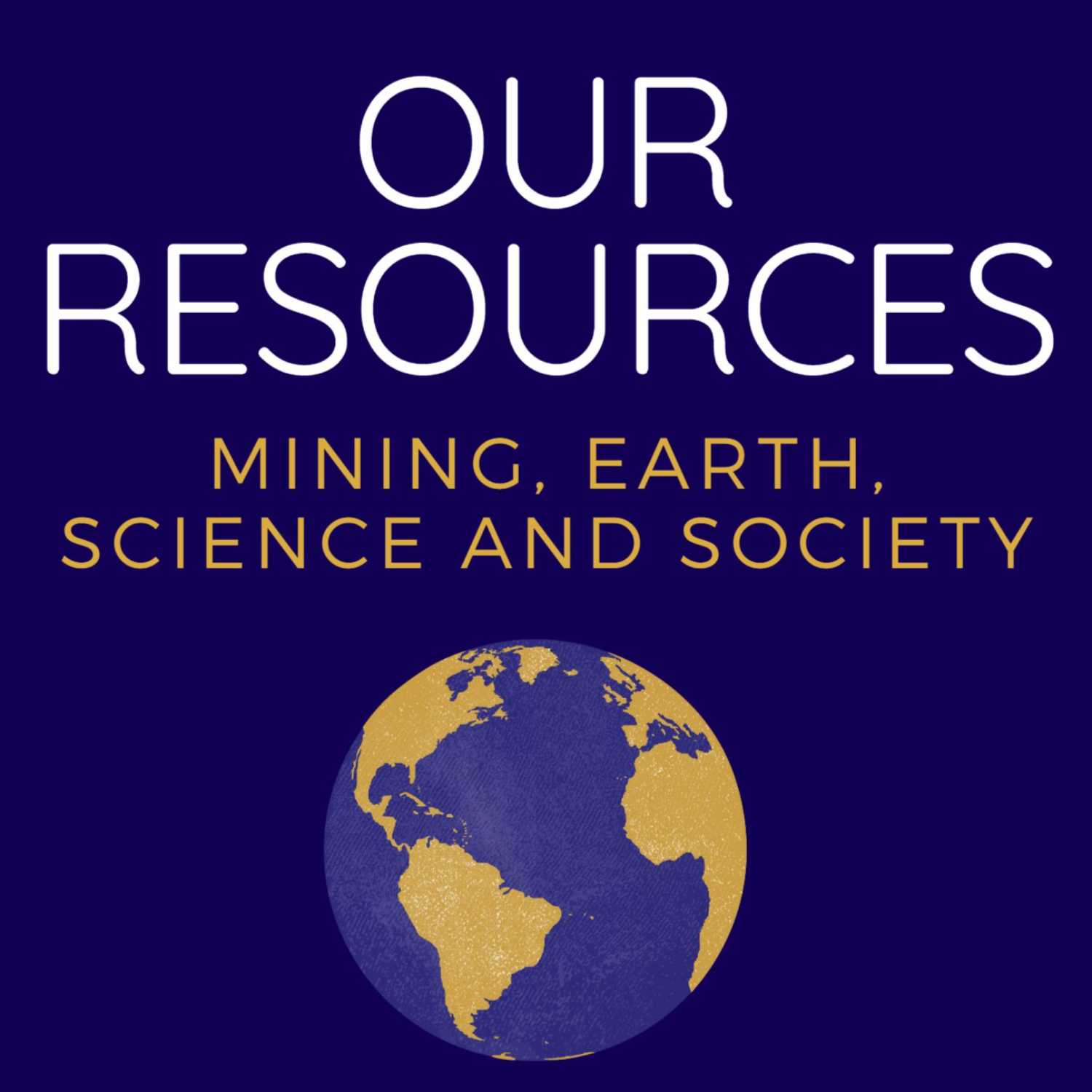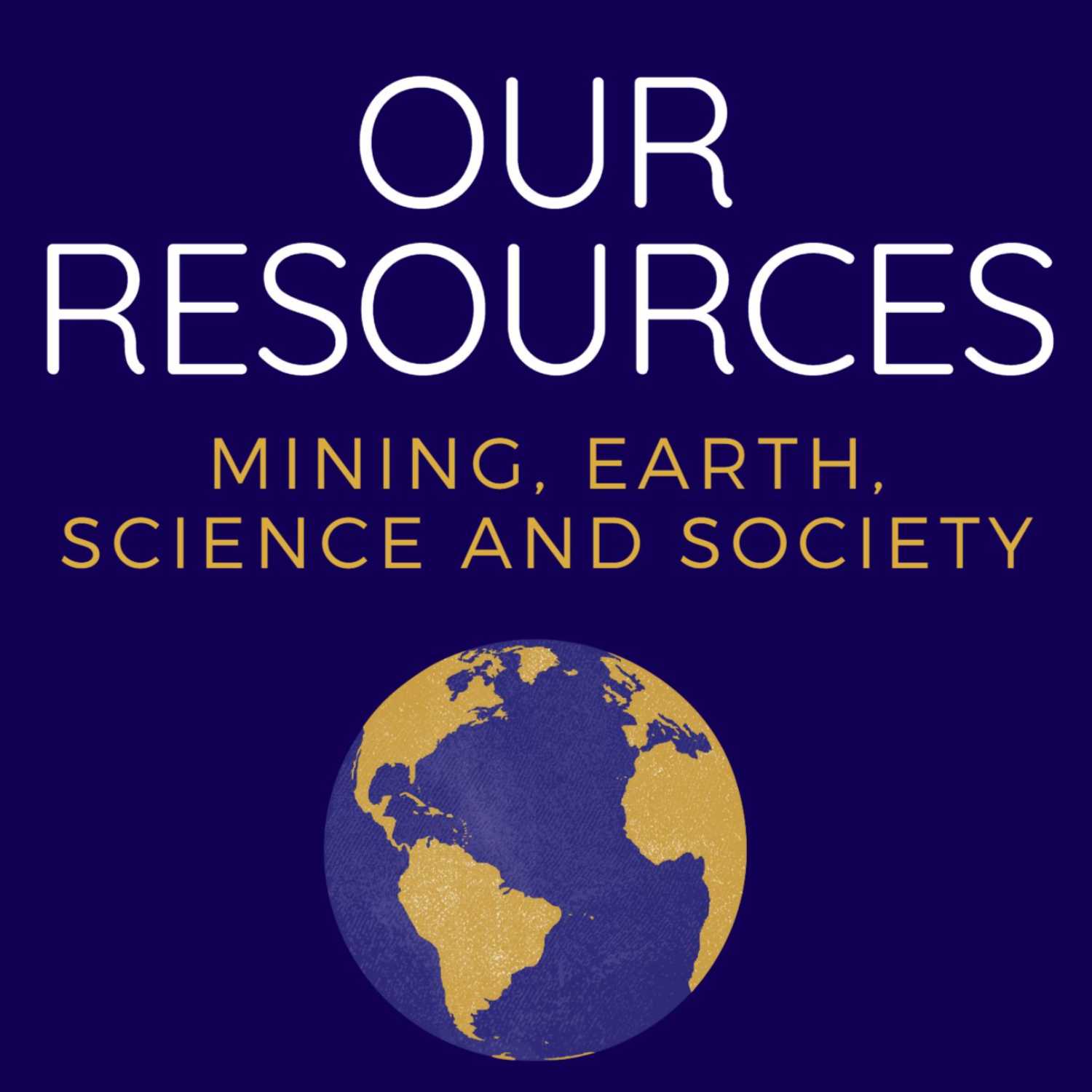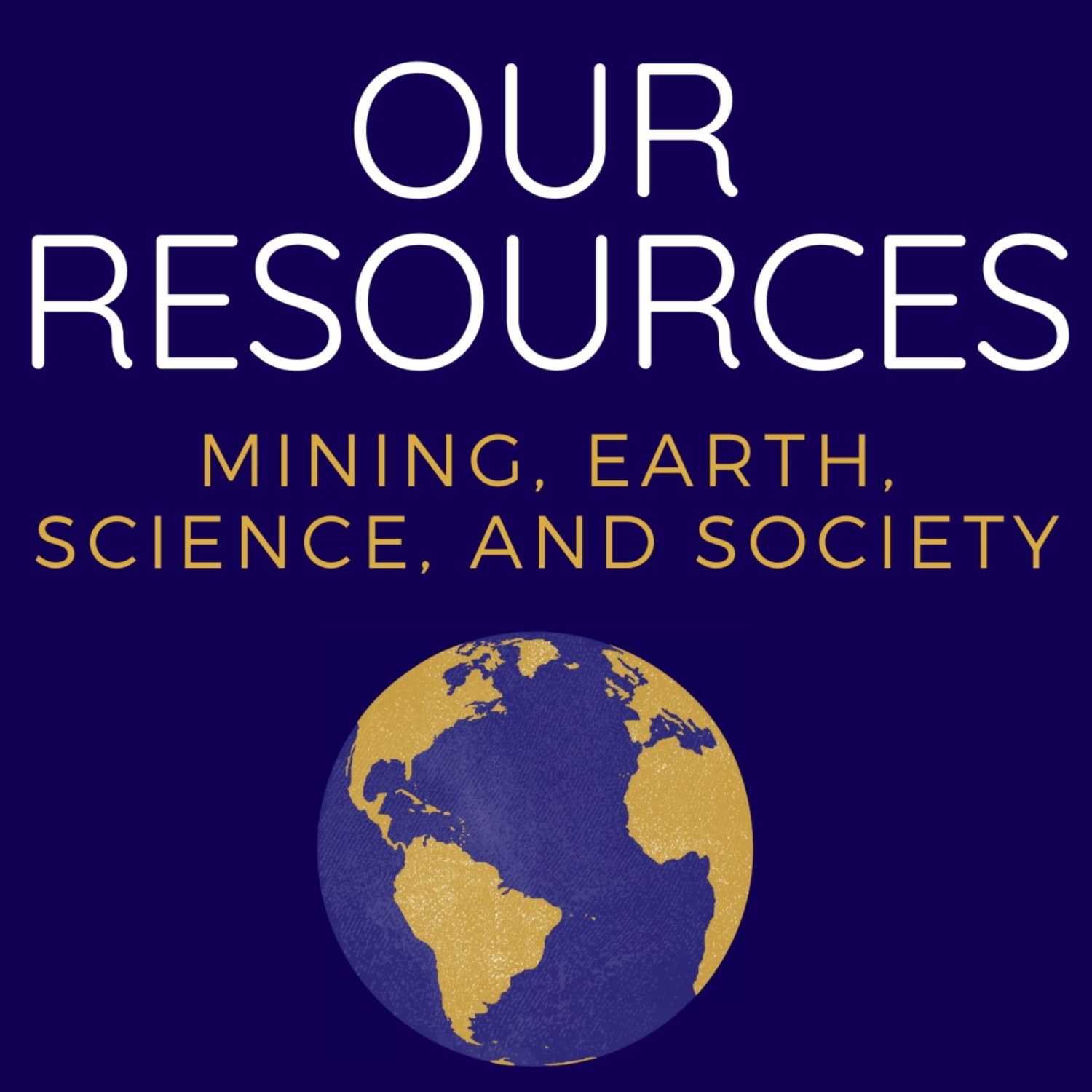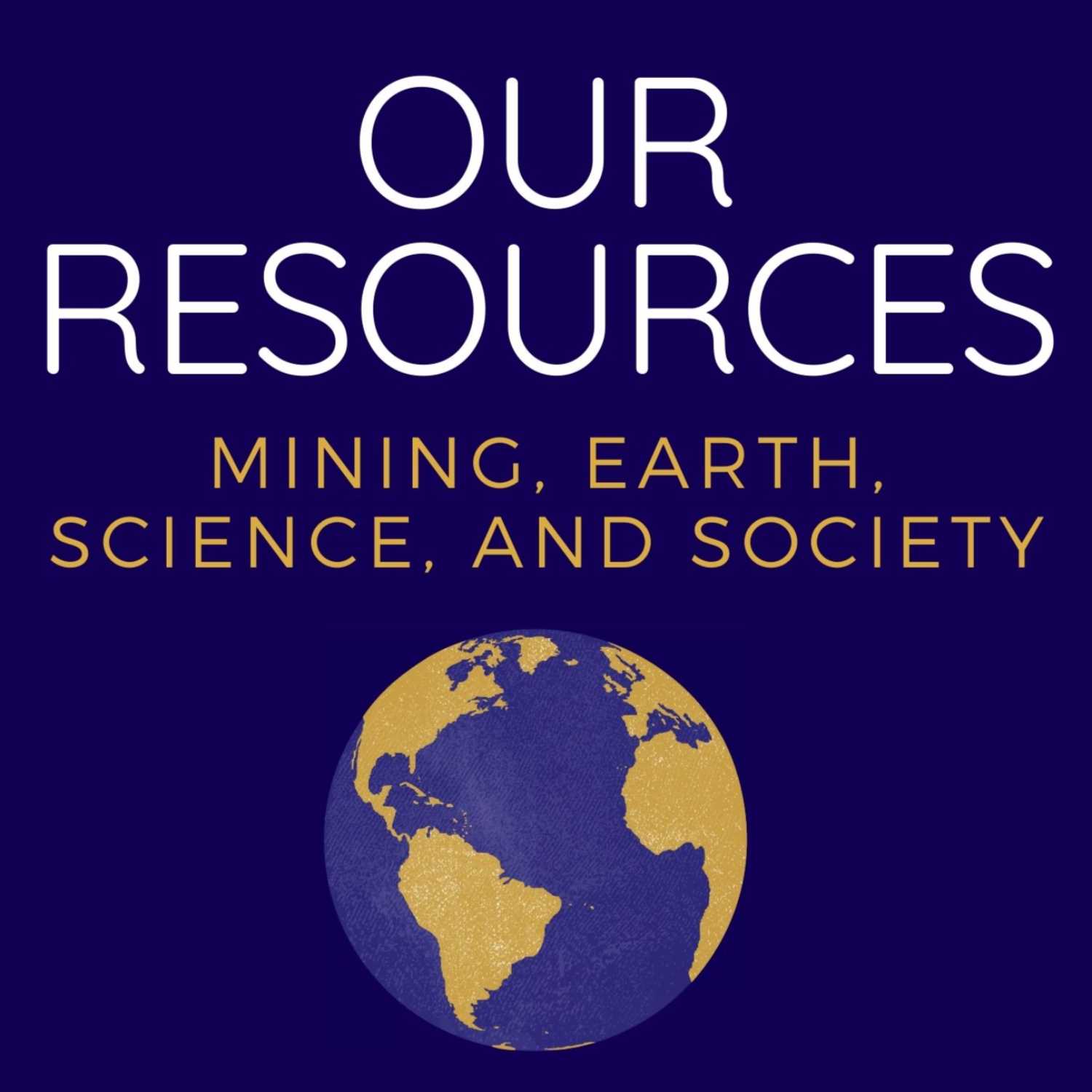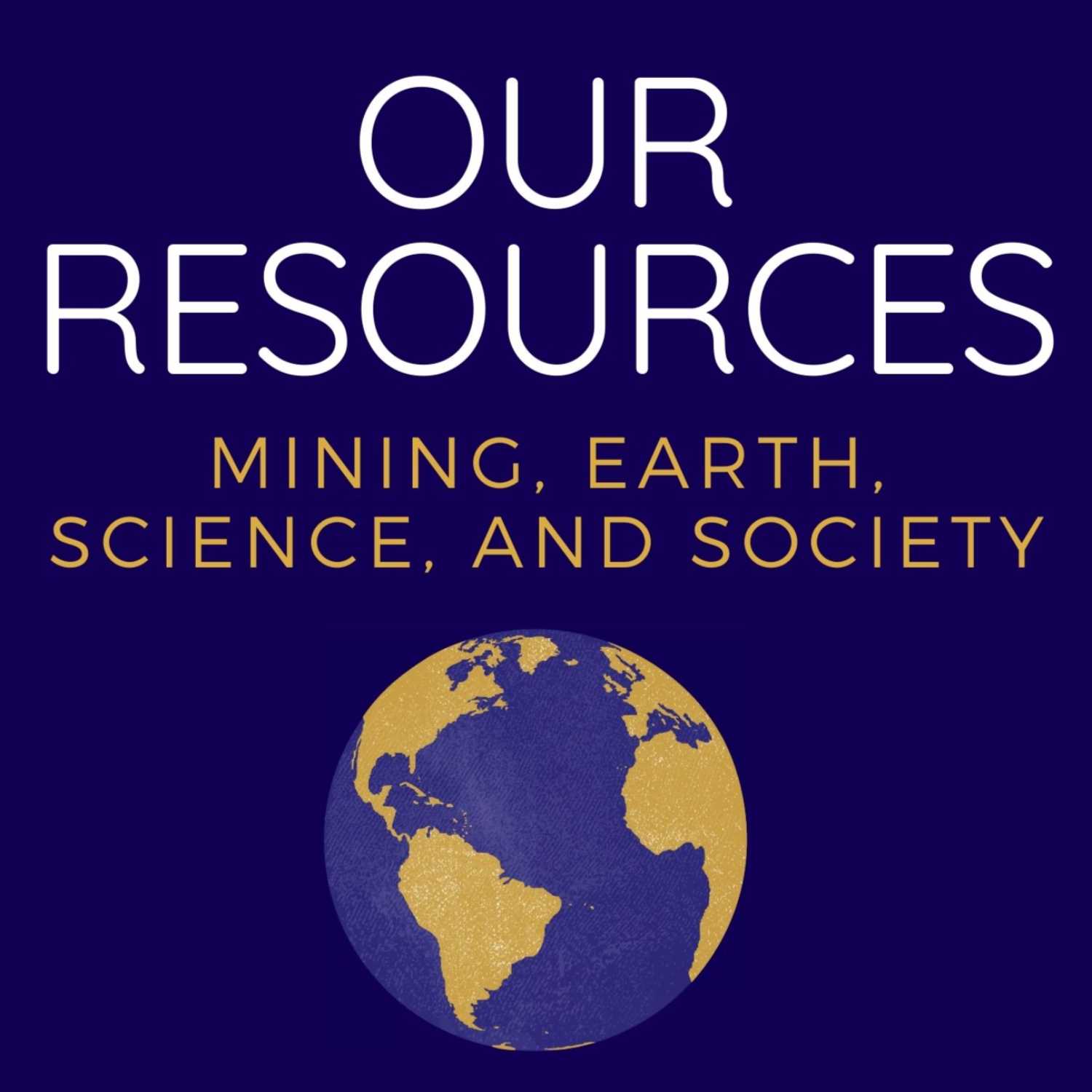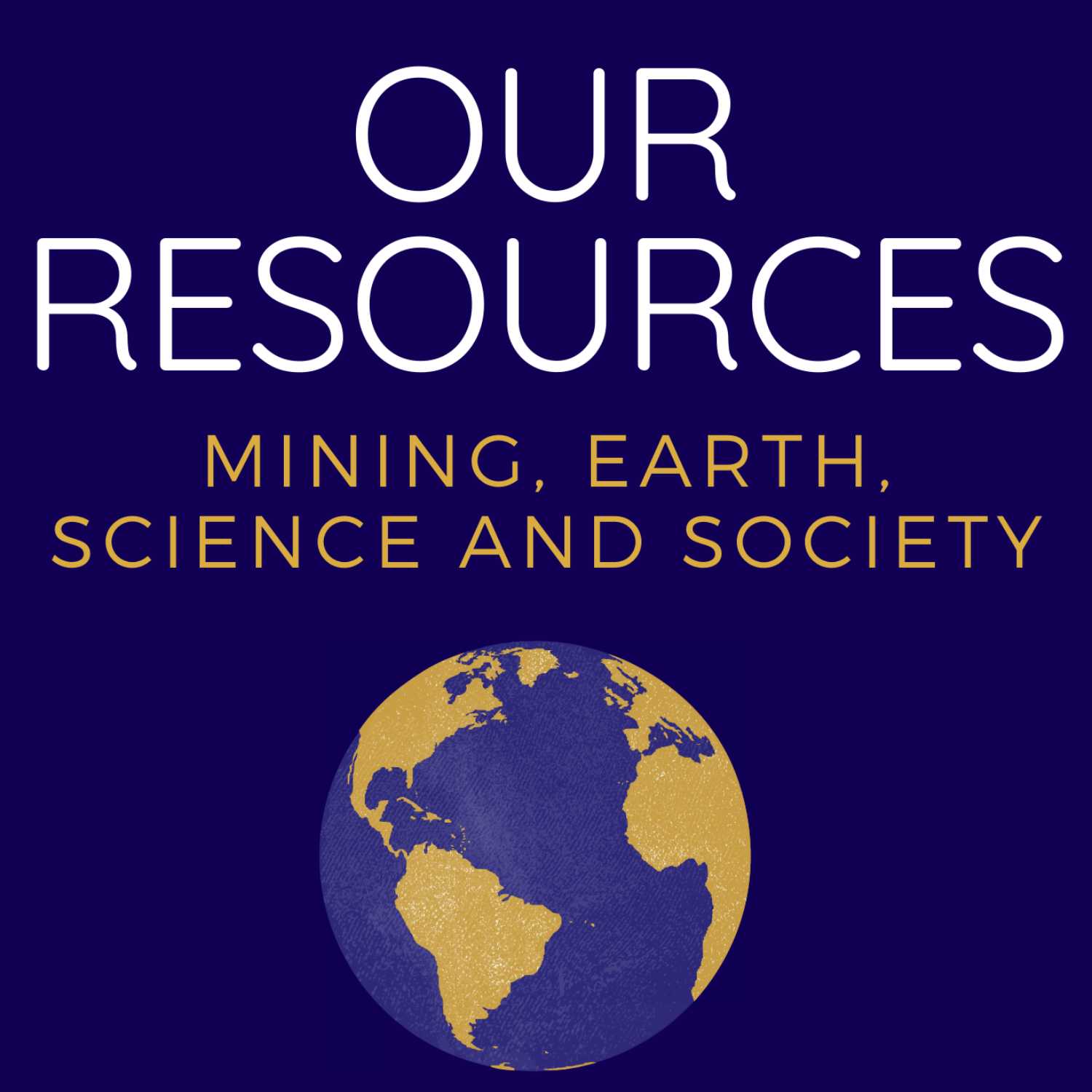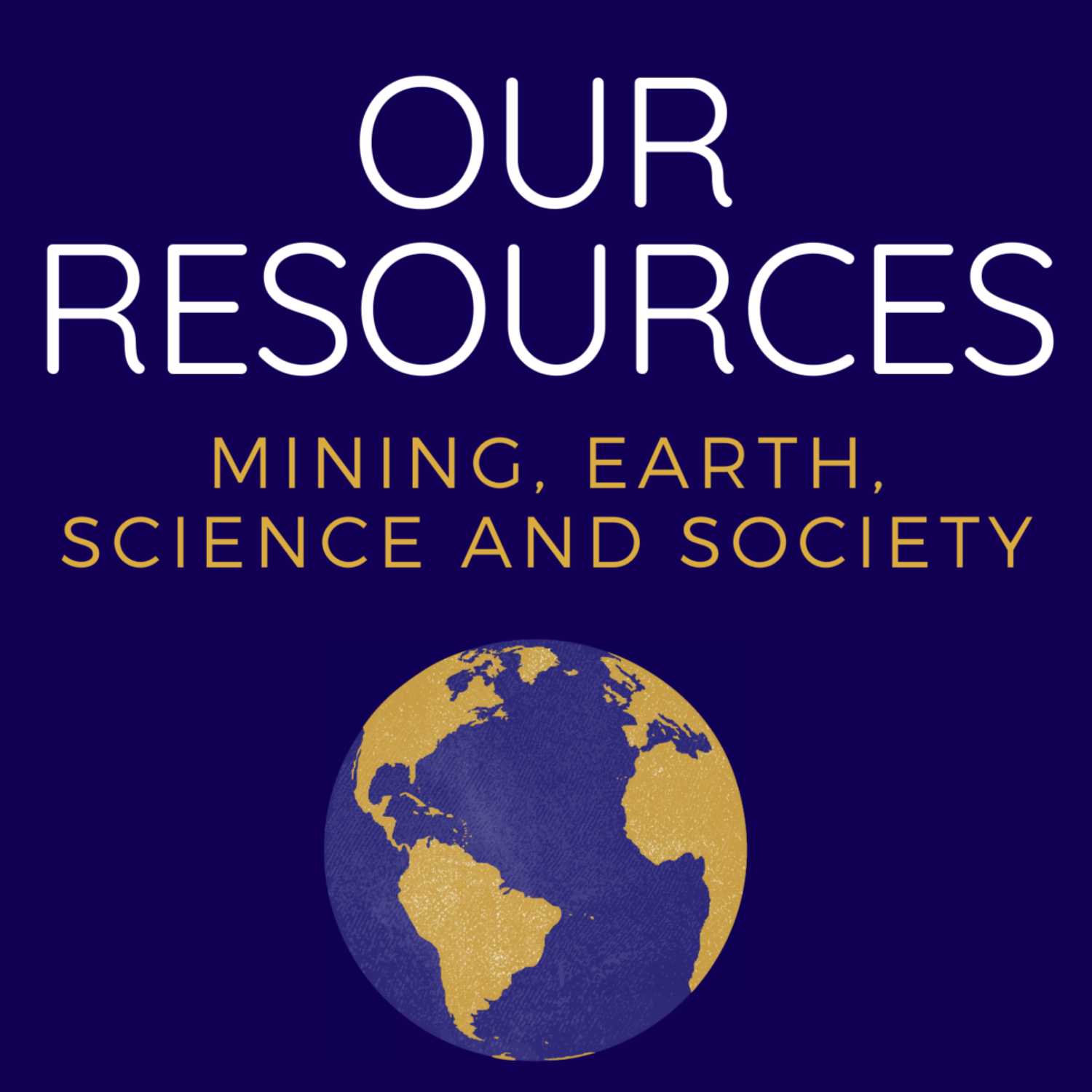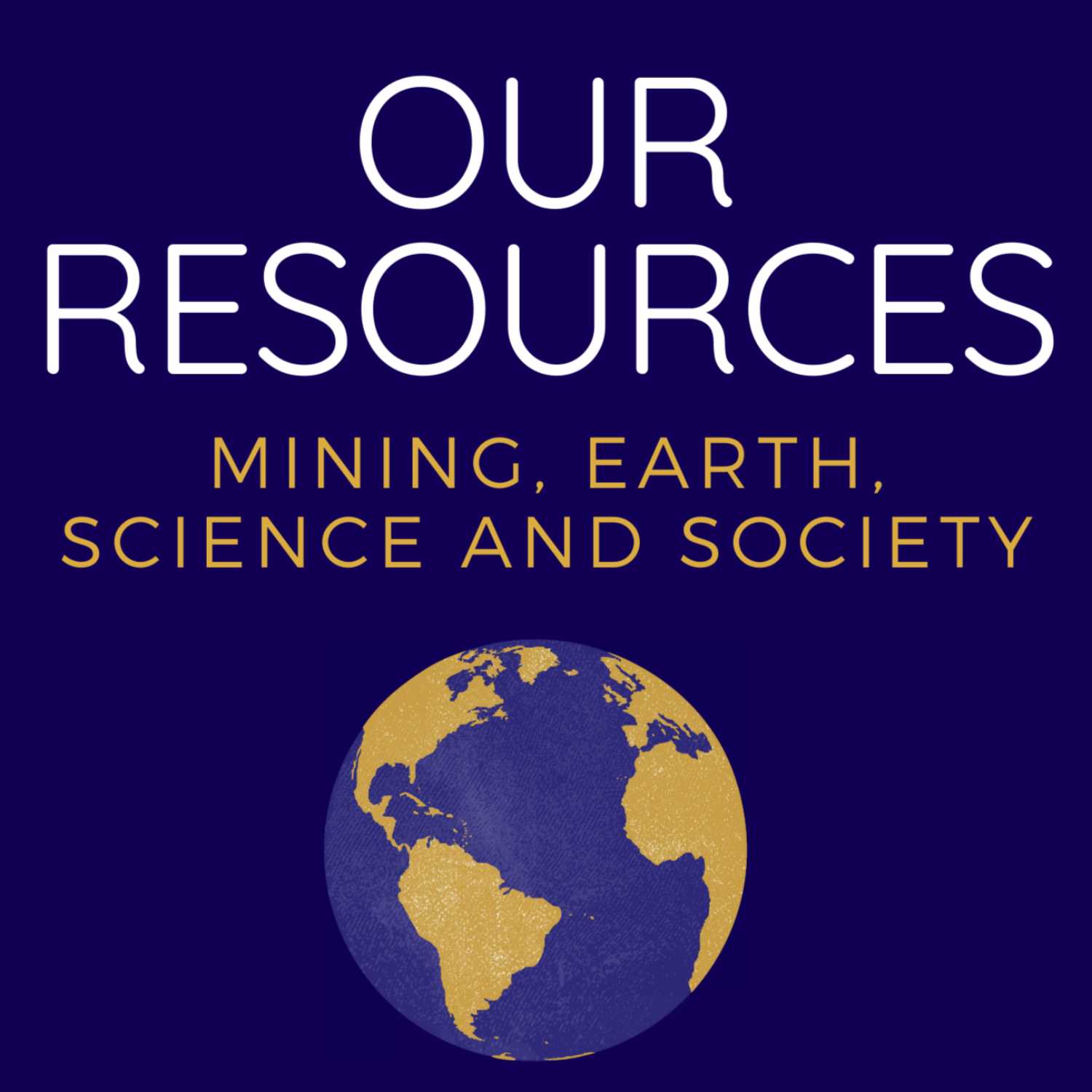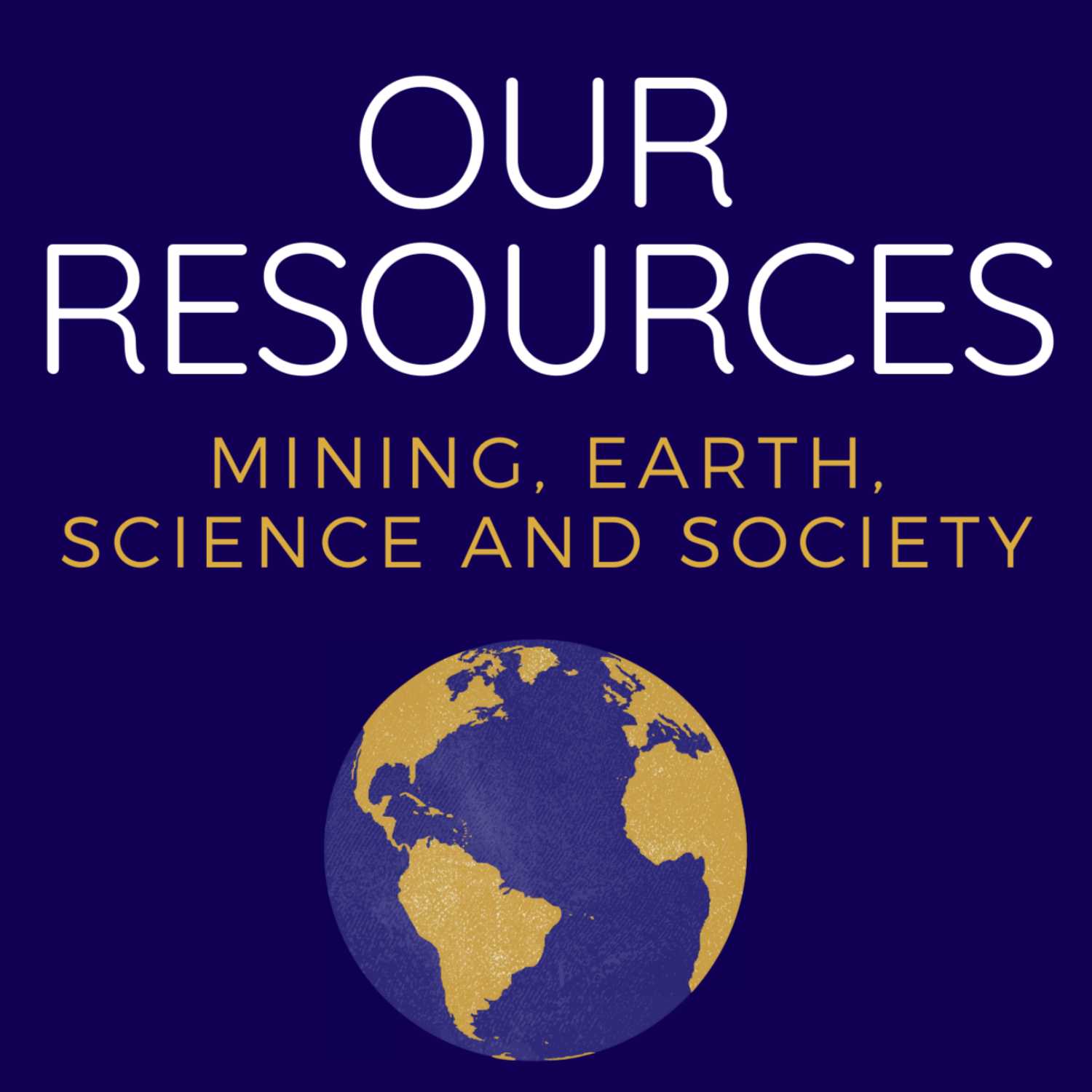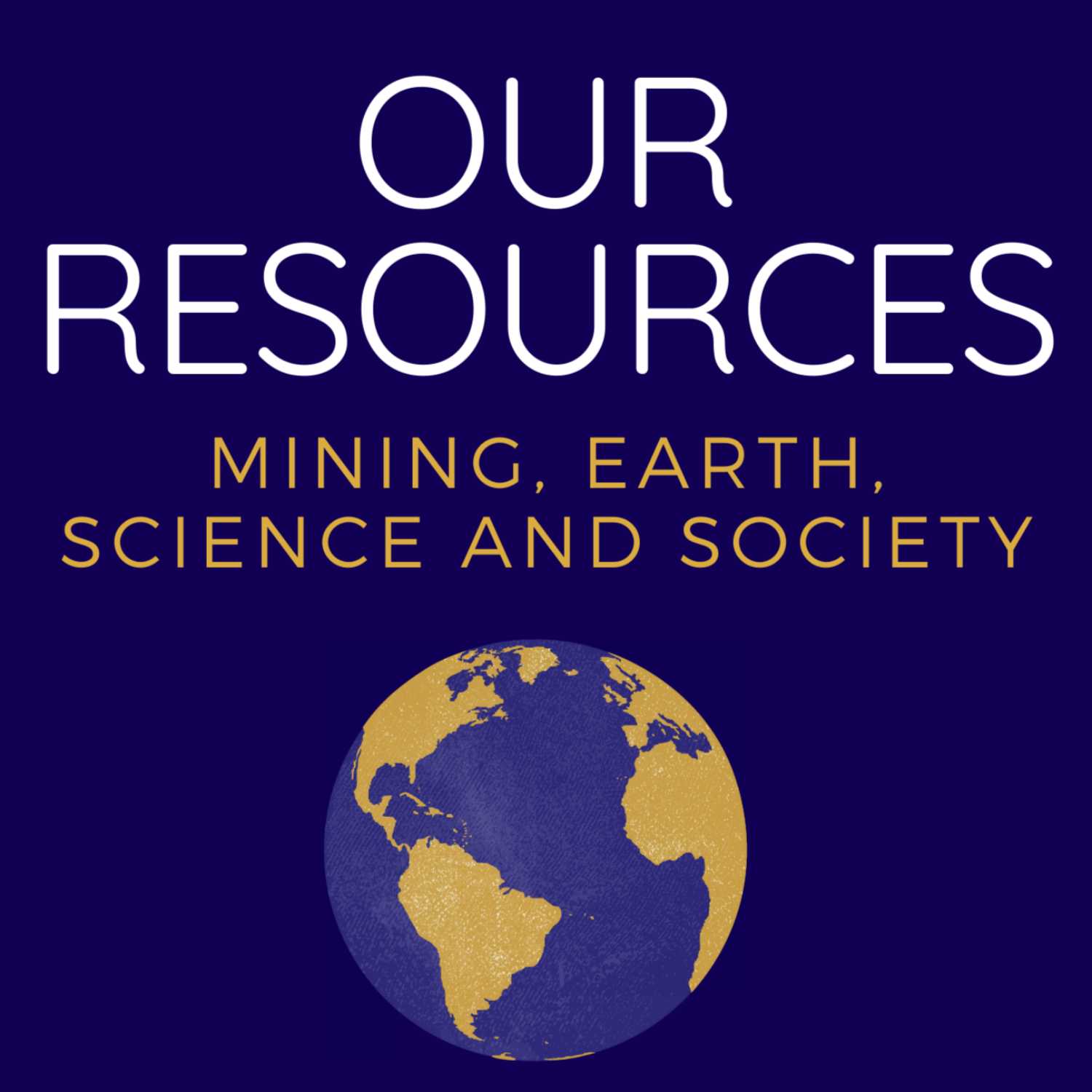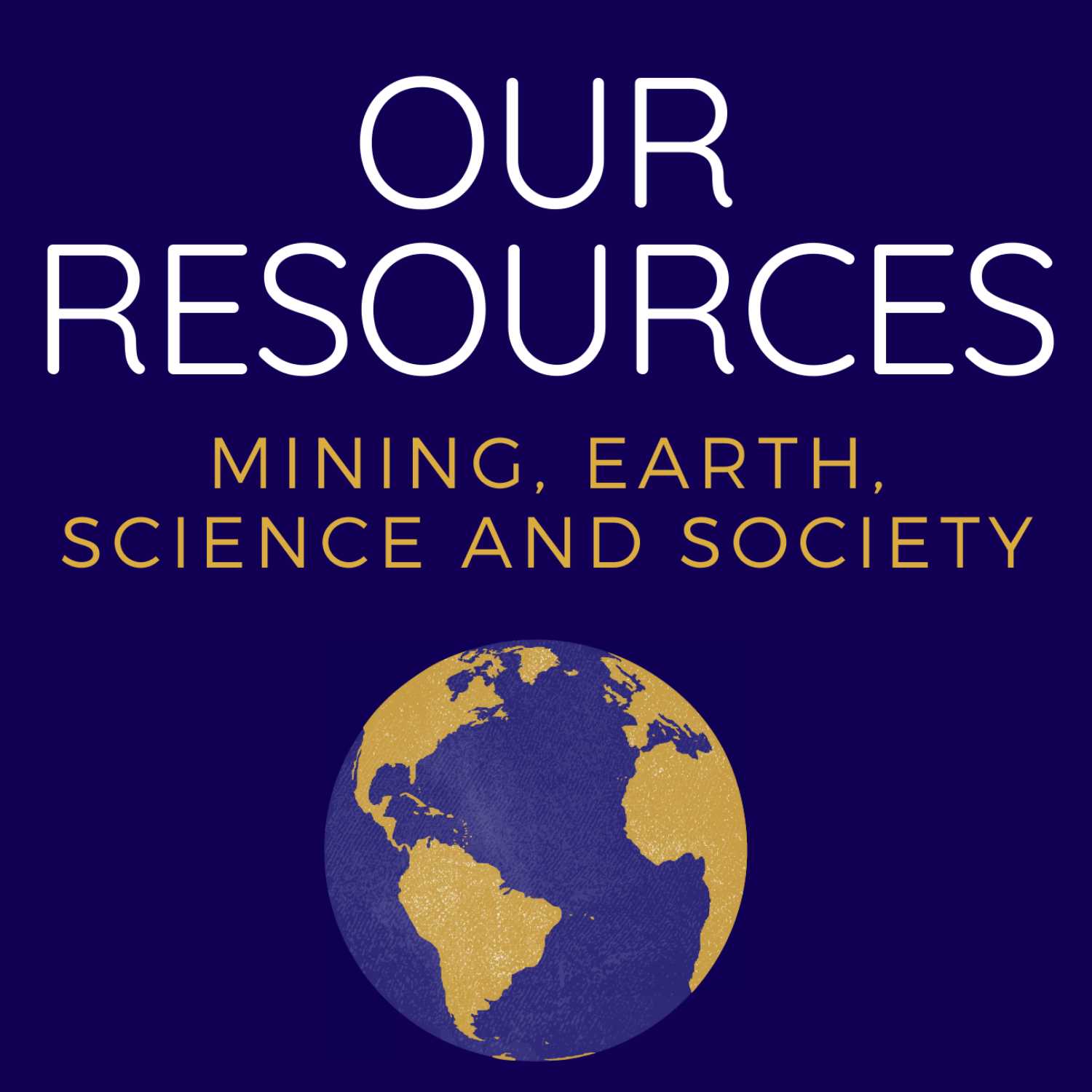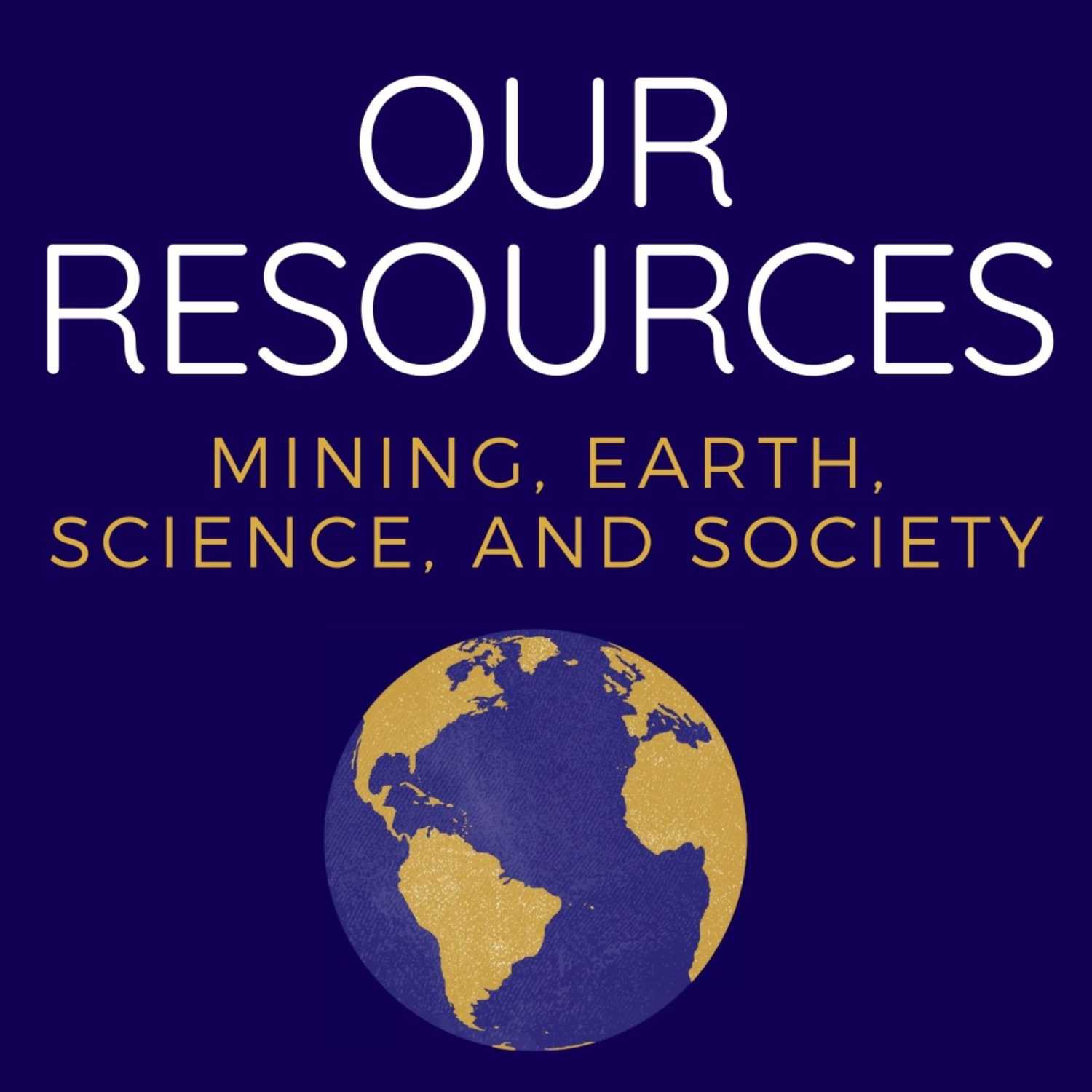Discover Our Resources : Mining, Earth, Science, and Society
Our Resources : Mining, Earth, Science, and Society

Our Resources : Mining, Earth, Science, and Society
Author: Caelen Burand
Subscribed: 2Played: 0Subscribe
Share
© Caelen Burand
Description
Is modern mining sustainable? How does mining interact with our world? This podcast explores the complexity of our highly needed but finite mineral resources. Each month we invite thoughtful experts from diverse fields to passionately discuss mineral resourcing and modernity. The host, Caelen Burand, founder and director of Young Mining Professionals Arizona aims to critically examine big-picture topics like corporate social responsibility, exploration, sustainability, and technology. Each episode aims to provide listeners with new perspectives and valuable insight that will help them improve the status quo.
12 Episodes
Reverse
Lynnette Hutson is a PhD candidate at the University of Arizona but has a rich and exciting background within the mining industry. Starting as a geo she has worked various "stretch" jobs to find herself making business decisions, engineering, and continuing to ask for new training to excel within her position. Through this she has developed a well-rounded understanding of the mining industry and corporate culture. The conversation is a "crash course" in corporate culture and also highlights the opportunities for young professionals to lead from the bottom up.
Mining is theoretically a short-term activity. Mines extract resources, invest in their community's, and produce value then fade into the past. This is the goal of every mine, but the reality is significantly different. Mines change the landscape and subsurface. Learning how we manage this, plan for the inevitable alteration, and design for post-mine life represents a major knowledge gap. The reclamation of mined lands is a relatively new concept across the globe but has grown incredibly important in a short period of time and will only increase in significance. Planning for mined lands to be used after the mine has closed requires an evaluation of the dynamics between communities, governments, and companies and is difficult to complete. This episode explores this space in the Australian context and outlines the most pressing challenges we face.Find a list of publications by clicking here
Welcome to the first Our Resources monologue! It is meant to introduce me, the host, the podcast, and give a future outlook. Through the episode I hope to convince you that this podcast is worth your time and that by listening you will be better prepared to improve our world. If there are any disagreements, comments, or questions about what I mention during the episode, reach out at caeburand@gmail.com .
Stephen Williams in a metallurgical engineer turned investor relations expert for Bluestone Resources, an up and coming epithermal gold project in Guatemala. During today's episode, Stephen shares his experiences as a professional engineer and within the financial sector. He shares his insights on how interdisciplinarism is essential for our industry, 21st century due diligence and mineral resource governance, and explains the nature of mineral resource entrepreneurship.
Adam Hawkins is a social governance expert from Global External Relations. He has experience working within mining throughout the globe and particularly within the Southwest US, During the episode he shares his experiences working with government officials and communities, espouses on the best and worst mining legislation, and makes recommendations for our nation to improve mineral resource policy. He is particularly passionate about reforming abandoned mine lands and speaks passionately about his experiences with Cactus Mine, a new copper mine in central AZ.
Dr. Jon Mellon is a social scientist from West Point Military Academy fascinated by how our society interacts and the tools/methods we use to understand our society. His interests are on pertinent topics like democratic elections and public opinion. He has also helped improve our collective ability to understand big data in the social sciences. The conversation focuses on what tools and mindsets we can use to understand big data sets and also the results of research which impacts our societies. Jon is an excellent communicator of science and articulates the crux of his recent investigation into instrumental variables titled, "Rain, Rain, Go Away: 192 Potential Exclusion-Restriction Violations for Studies Using Weather as an Instrumental Variable" which argues that many studies may be overvaluing the instrumental variable of weather to identify predictive correlations related to conflict, wealth, and much more. This episode is both revealing and informative. I hope that you enjoy and thank you for listening.
In the past century, the world has gone through a significant transition. The materials we rely upon once were sourced from tens of millions of small to medium-sized mines spread throughout the world. Nowadays, the majority of formal mining operations are massive open pits, deep underground mines, or other forms of mass extraction. But is this the most efficient way for society to extract it’s mineral resources? That is a critical question as we enter a phase where demand far outpaces supply and efficient supply of mined materials will be a high priority. Dr. Kathryn Moore, from the University of Exeter, has helped to develop a novel system for mining called switch-on and switch-off mining that may advance our ability to efficiently mine. This new model uses small, high grade, ore bodies paired with innovative mining technology to allow minerals to be extracted and concentrated without the enormity of many other mining operations. Instead of decades of lead time followed by massive disruption and centuries of land rehabilitation, this new way of extracting minerals may provide us with essential materials without the large and ugly footprint. These ideas are discussed during the episode and what they mean for mining and our society. After conducting two case studies in Eastern Europe, Dr. Moore and her team have analyzed this subject from many angles, including the ethics of the potential paradigm, to provide insight into how these technologies can be optimized. It presents a new way to think about how we will be able to meet the challenges of future resource demand without sacrificing well-being.As always, thank you to the listeners of the podcast! I hope that it is enriching and provides valuable insight!Here are citations for some of her papers:Moore, Kathryn. "IMPaCT, Integrated Modular Plant and Containerised Tools for Selective, Low-impact Mining of Small High-grade Deposits, Horizon 2020." Impact 2018.8 (2018): 27-29.Beylot, Antoine, et al. "Switch on-switch off small-scale mining: Environmental performance in a life cycle perspective." Journal of Cleaner Production 312 (2021): 127647.Moore, K. R., et al. "Sustainability of switch on-switch off (SOSO) mining: Human resource development tailored to technological solutions." Resources Policy 73 (2021): 102167.Paneri, Anshul, et al. "Renewable energy can make small-scale mining in Europe more feasible." Resources, Conservation and Recycling 172 (2021): 105674.
Tobi Dayo-Olupona is a guest whom words cannot describe. He is a polymath, entrepreneur, leader, and brilliant engineer, among other pursuits. Tobi is currently a PhD candidate at the University of Witwatersrand along with being the Director of Afrmine but has a unexpected path into mineral resources.Even though most of our conversation is about mining, the lessons and meaning of what we discuss is not unique to mining and is applicable for any young professional seeking to make a positive impact on our world. For example, Tobi describes how, in high school, he was leading 5+ organizations and learned that he needed to delegate, a lesson that extends far beyond mining.Thank you for taking the time to listen to my conversation with Tobi Dayo-Olupona, I hope our conversation is inspiring and useful.Afrimine Youtube ChannelTobi's Master's Thesis, "Technology adoption in mining: A multi-criteria method to select emerging technology in surface mines"
What does a financial analyst in mining do? That is the question that came to mind when I first met today’s guest, Jean Delebarre through our shared experiences starting Young Mining Professionals chapters. Jean is a financial analyst based out of Switzerland who focuses on aluminum assets. During the episode we talk about what it means to be a financial analyst and how his job is to maximize revenue allocation in order to capitalize upon their business. This takes a lot of work. Jean speaks about the research he conducts in order to understand how to reinvest funds, the negotiations between his team and the operations, and more.Beyond his background in finance, Jean is also an interesting person to talk to. During the conversation this comes to the surface about halfway through as we begin to speak about his thoughts on ESG, foreign investment, and mining’s reputation. Contrary to my skeptical, borderline pessimistic view, Jean explained why he believes that because mining is inherently connected to the land that miners are wanting to embrace ESG and that we are the industry best prepared to overcome ESG challenges.Overall, it is a far-reaching conversation, and we touch on many high level topics that I am looking forward to diving into further on future episodes. That said, if you are interested in a particular topic or guest, reach out to me on Linkedin or through the Young Mining Professional’s Arizona page and let me know who or what you would like to see discussed on the Our Resources Podcast.As always I hope you enjoy, and thank you for taking the time to listen to this conversation between myself and Jean Dellebarre.Please note: As with all of our Our Resources' guests, Jean's only represents himself on today's episode and does not represent any company, organization, or the mining industry as a whole.
You may have heard the phrase “geography is destiny” which alludes to how our natural resources are the source of civilization’s wealth and it's catalyst. Well, our guest today, Sarah Patterson a mine geologist, would instead suggest that “geology is destiny”In a previous encounter with Sarah, she said “if civilization is a ship, the rudder is geology and the sails are epidemiology.” At first glance, I thought this notion was preposterous but after hearing the logic, I wanted to share this with our audience. Sarah is biased in her view as a geologist, but she makes the case that Earth’s dynamism, tectonics, geomorphology, and other natural phenomena, set the stage for where humans were able to flourish. For example, the Atlantic and Pacific Oceans were a nearly insurmountable barrier caused by our dynamic planet and kept people from reaching the Americas for tens of thousands of years!More importantly, is the fact that geology stopped us from interacting with other diverse populations. Sarah argues that epidemiology, the study of diseases and how they spread, can provide the answers to understanding how people interacted with one another when crossing these geological barriers and intermingling. One of the most surprising facts I learned during the discussion is that Sarah was thinking about this before COVID and now her years of contemplation are seeing a high in popularity. I do want to highlight her thoughtfulness. Sarah is one of the few people that I have met who is unafraid of sitting in silence to think about how she would like to respond to a question. It is something I admire and respect as someone who strives to speak eloquently and carefully to optimize my communications.After we finished recording the episode, Sarah mentioned her interest in TB, tuberculosis, and the conversation was so interesting that we thought it should be recorded. So if you make it to the end you get a "bonus snippet" of fascinating facts about TB.I hope you enjoy the conversation as much as I did!Caelen Burand - Our Resources host
Jodi Banta is the program manager at the University of Arizona's new School of Mining and Mineral Resources which is a new program dedicated to building bridges between the many disciplines required to sustainably mine our mineral resources. It is aiming to change how the next generation learns about mineral resources and is able to apply that knowledge to advance our world. That said, she is new to mining! Jodi has worked in over 25 countries primarily as a business analyst and on the episode we dive into what she has learned from navigating large corporations like AIG.Jodi has great experience understanding people systems and provides the listeners with insight into how mining can be perceived through this lens as well. During the episode we talk about her research understanding how young people perceive mining along with her experiences helping reshape how the public perceives our industry.
Trailer out now!


